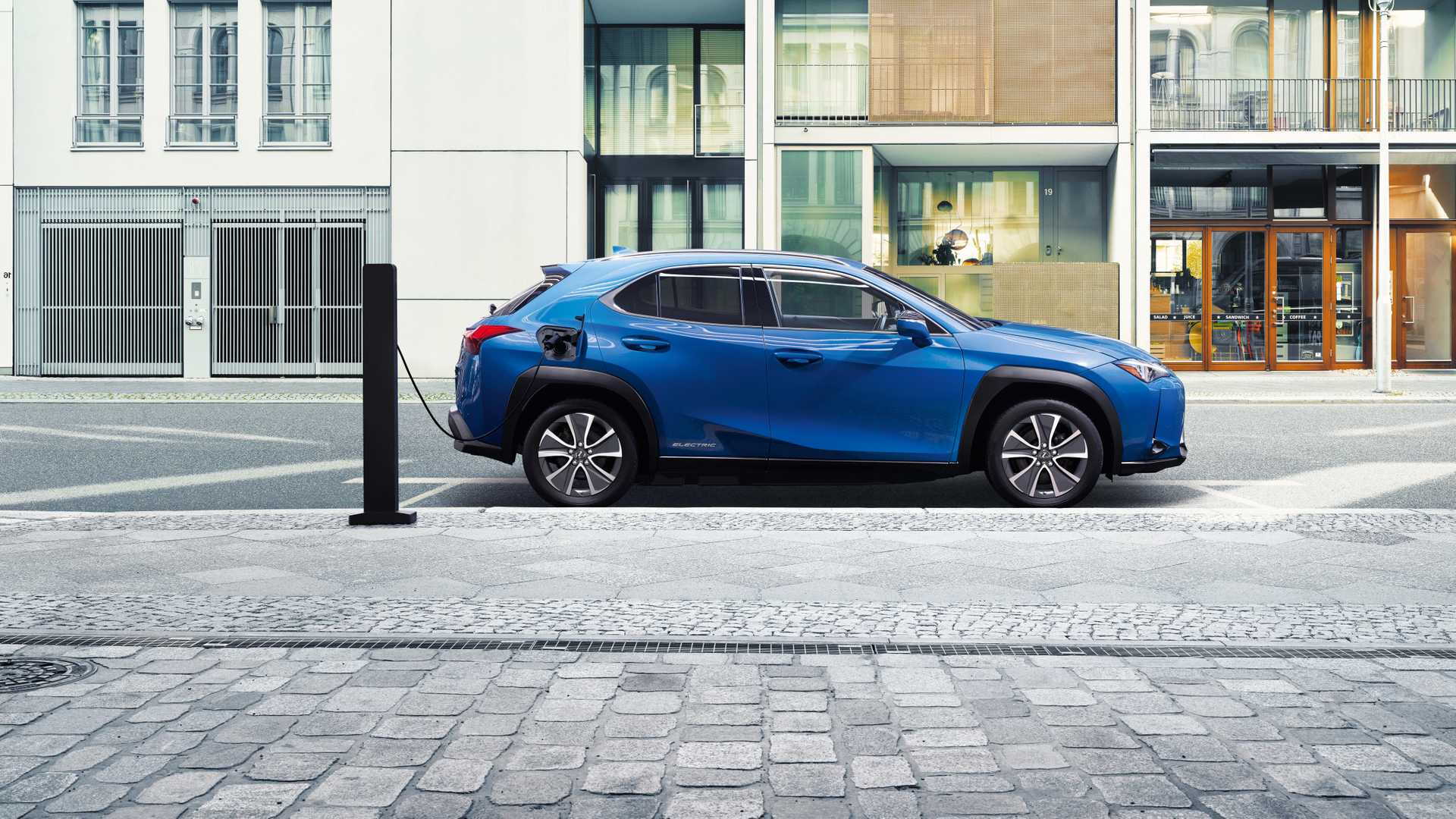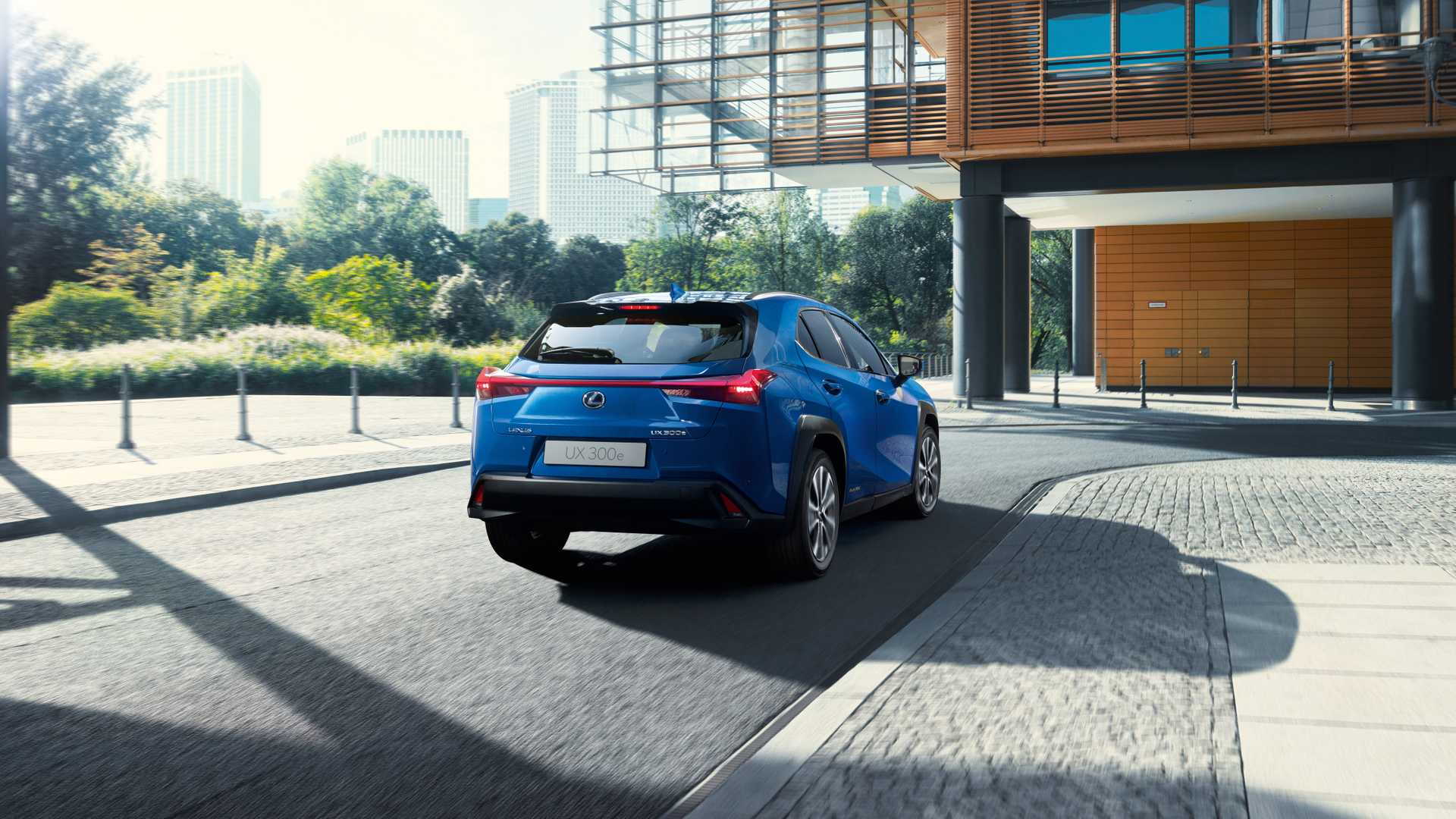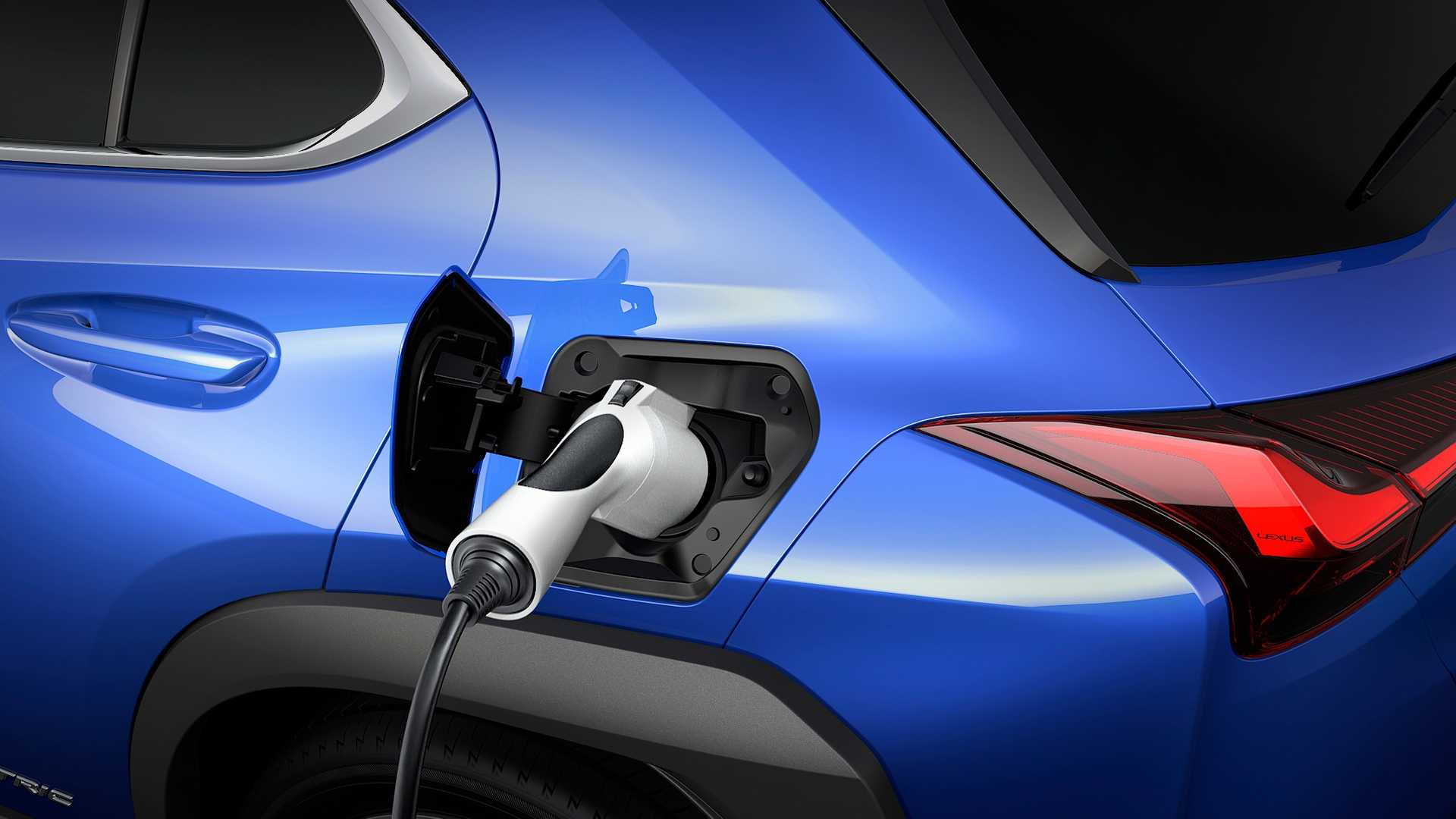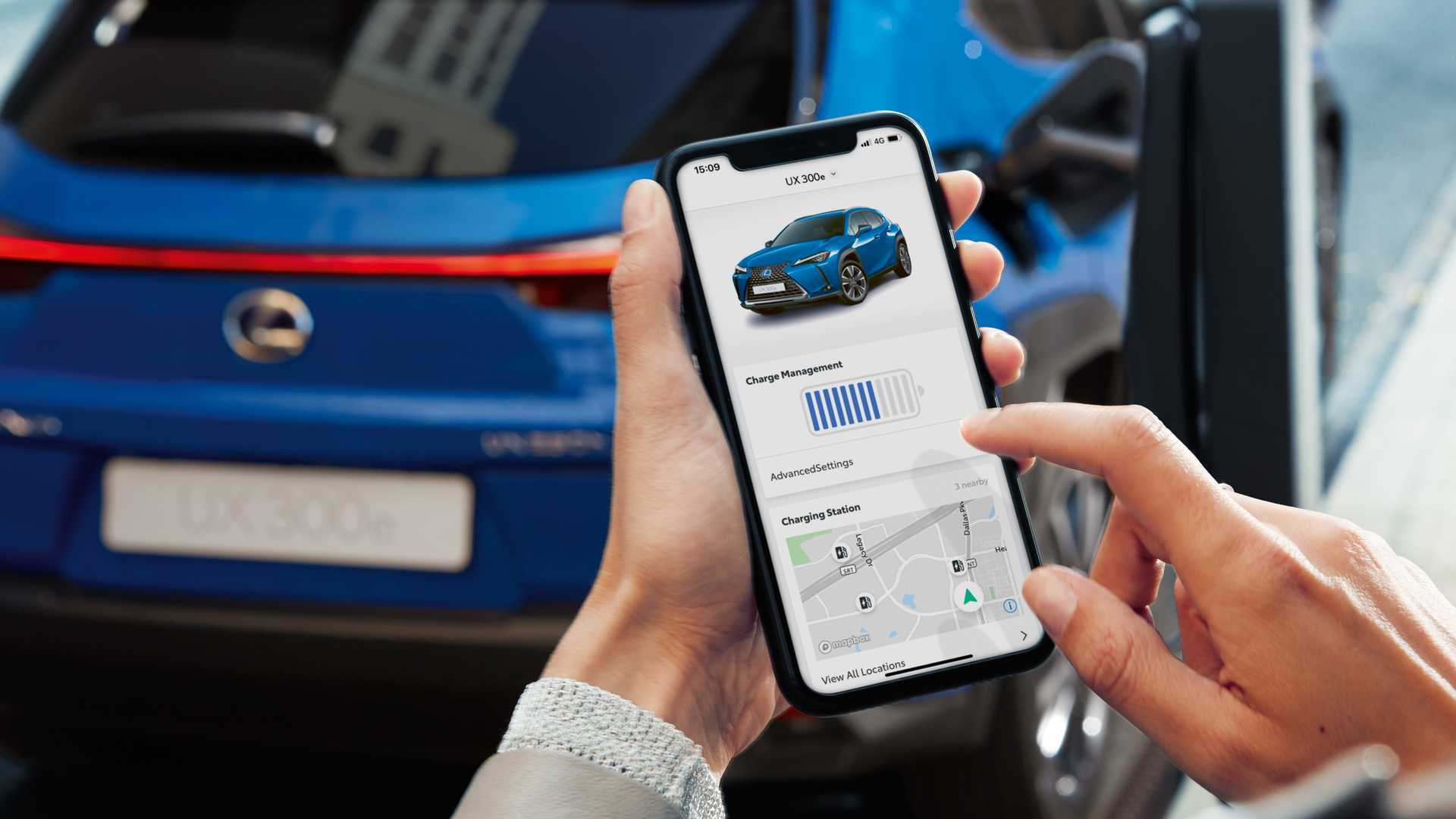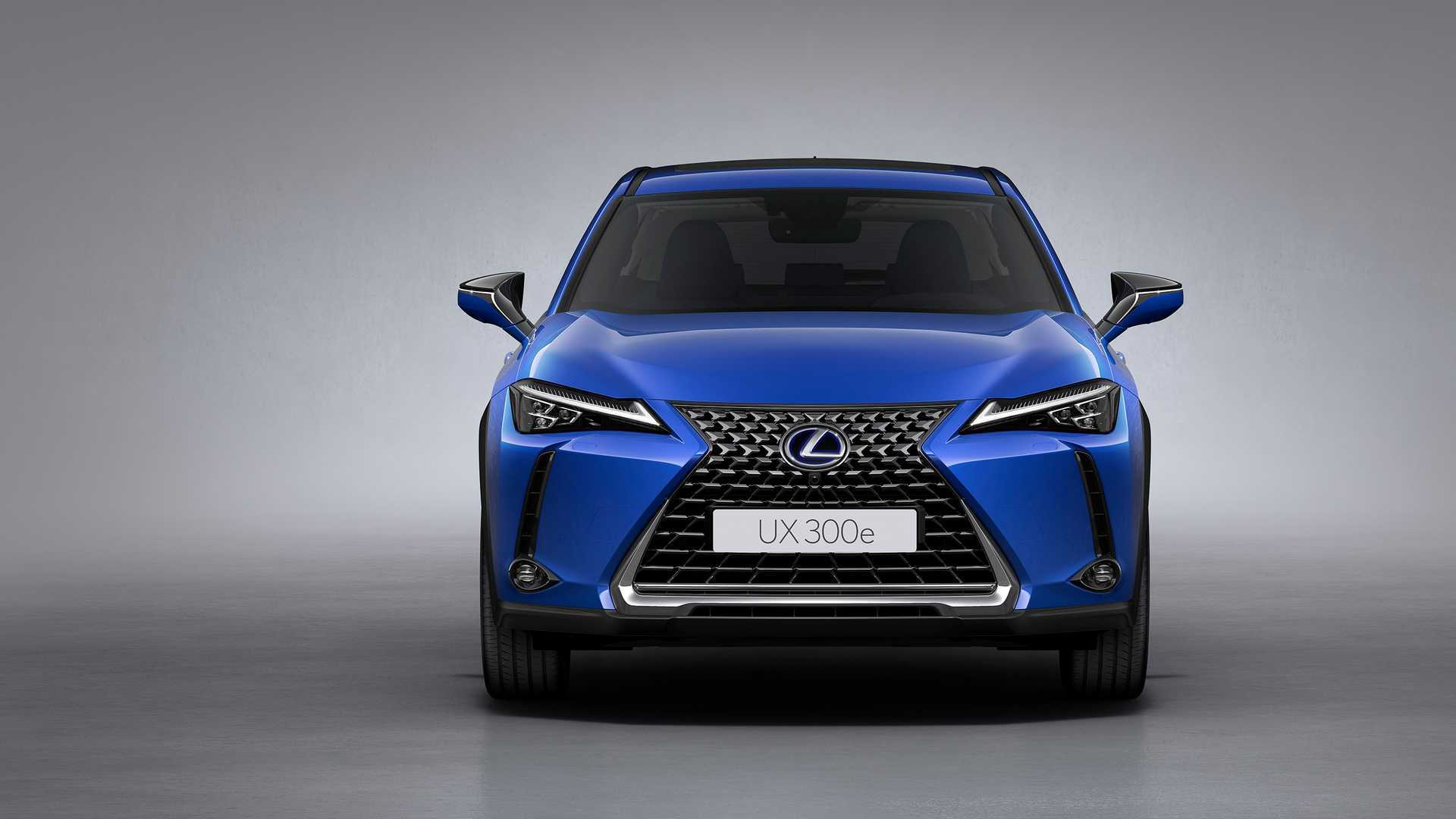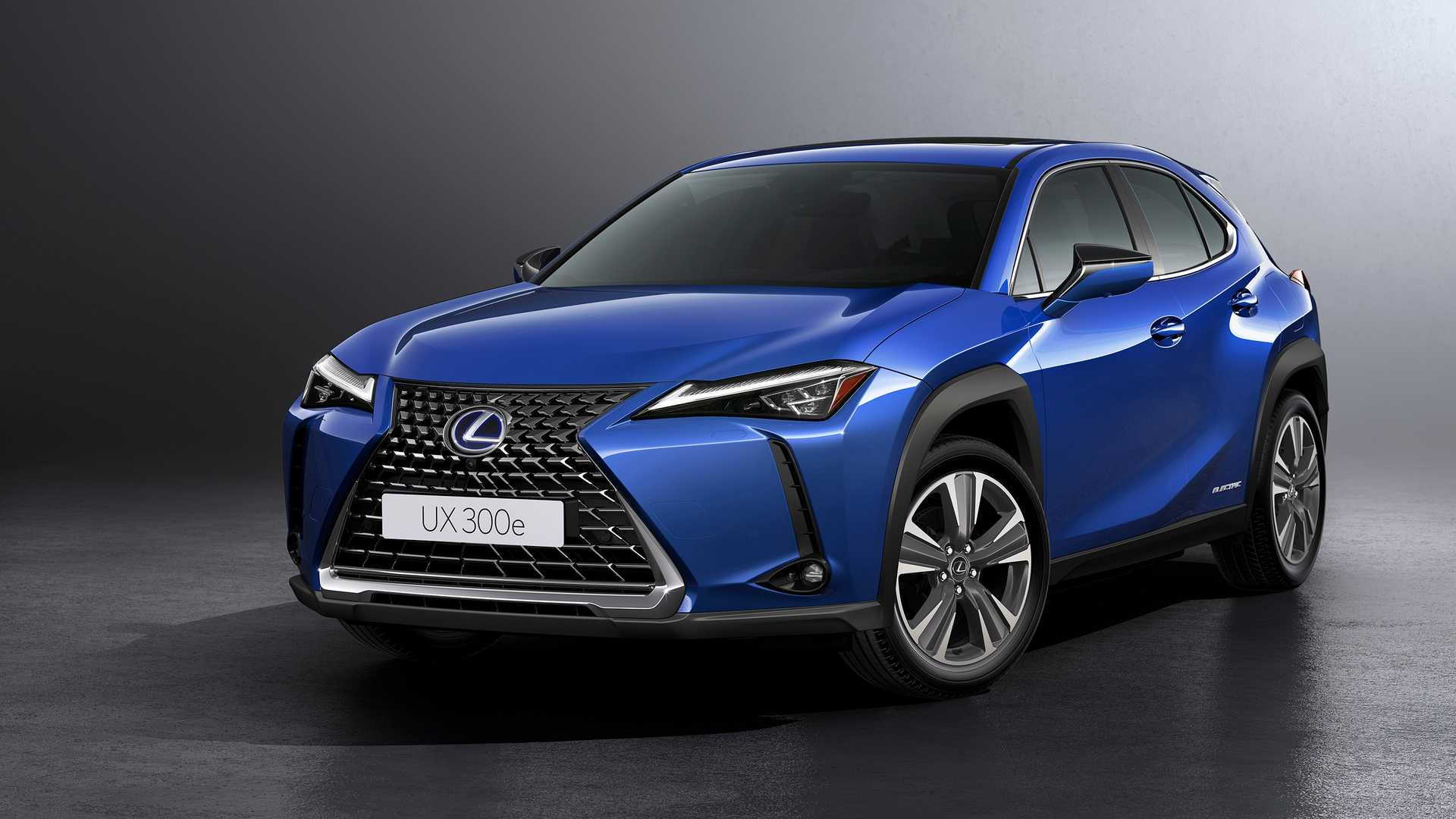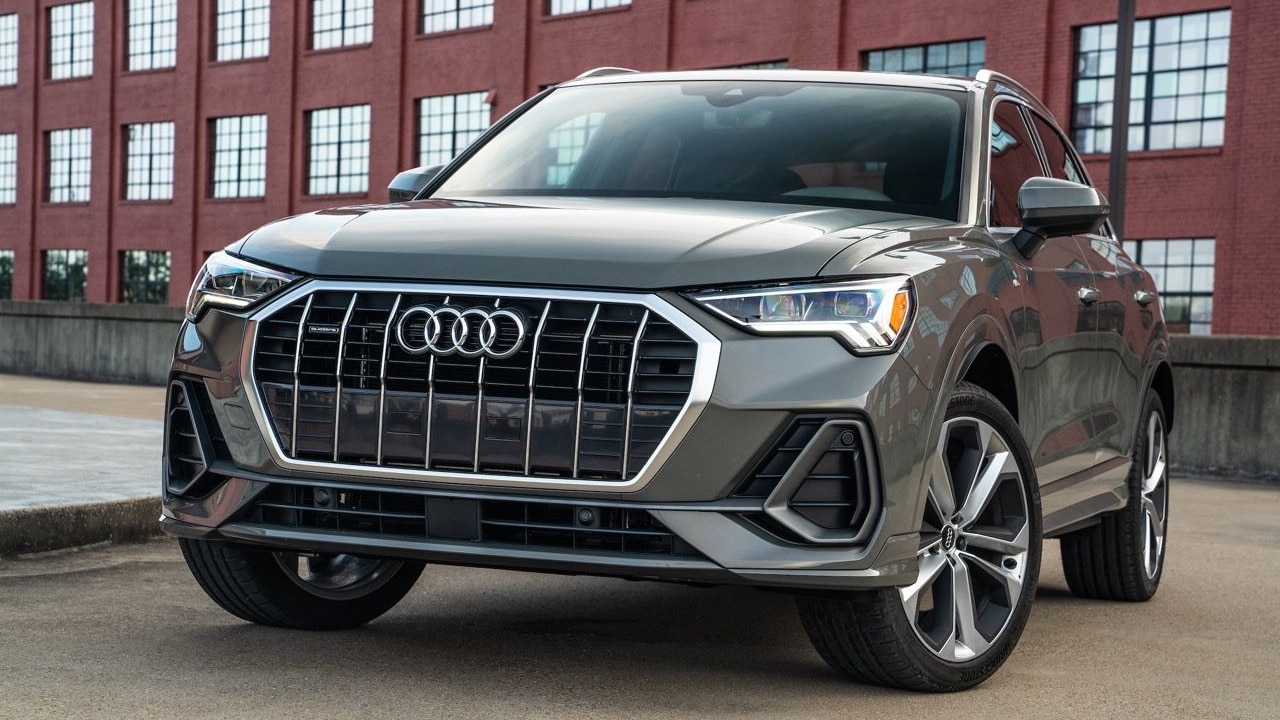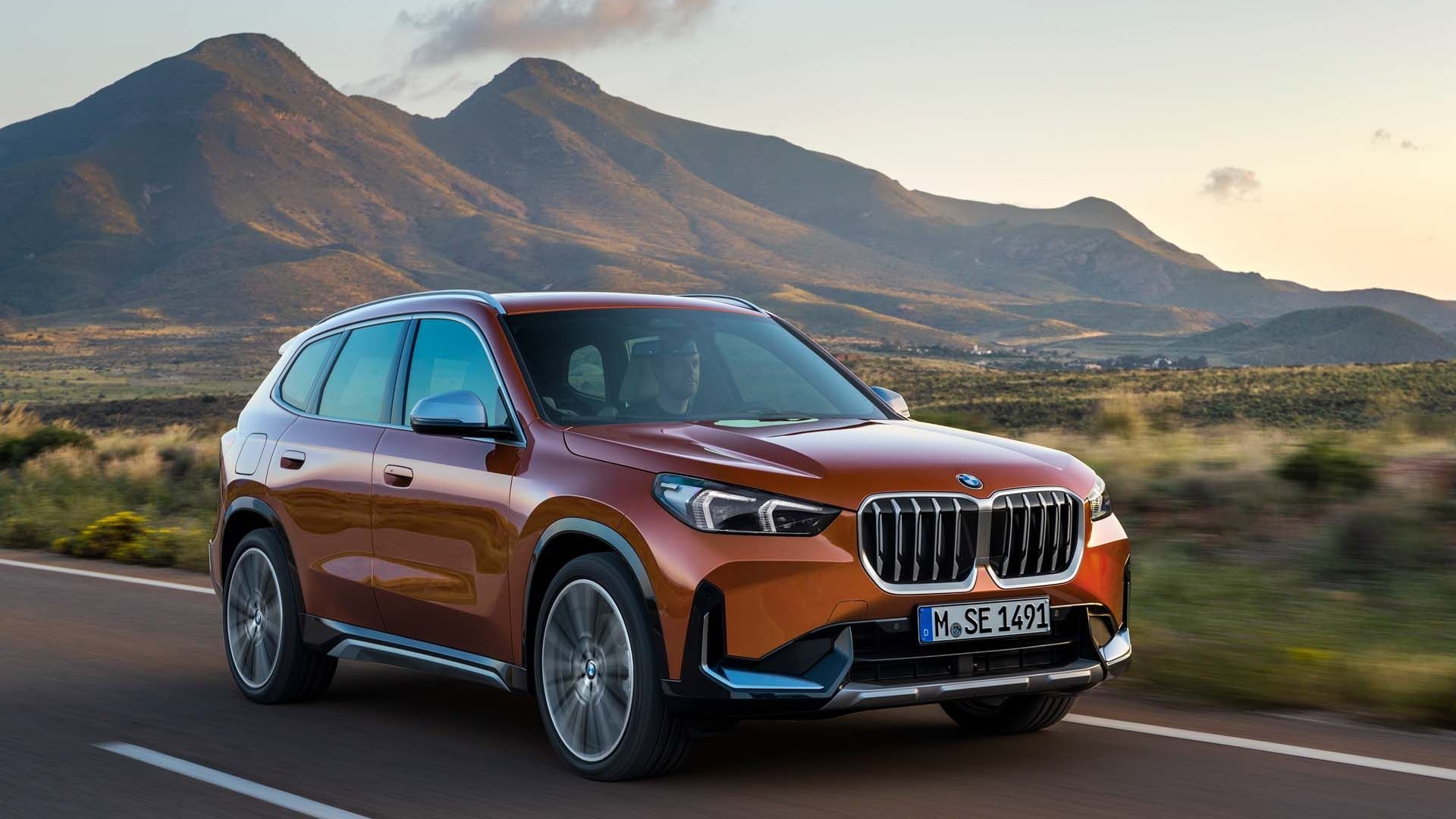Toyota is committed to launching at least 10 battery-electric cars by 2025. Some of these will come from Lexus which presented an EV concept at last month's Tokyo Motor Show and has now followed it up with a production EV, the first for the brand.
While the earlier concept explores the type of EVs Lexus might be selling a decade from now, Lexus unveiled the production-ready UX 300e battery-electric compact crossover on Friday at Auto Guangzhou. While we won't see it on sale in the United States, the vehicle will hit showrooms in China in 2020 and elsewhere starting from 2021.

Lexus LF-30 Electrified concept
Starting with the GA-C platform found in the regular UX, Lexus engineers installed a 54.3-kilowatt-hour battery in the floor. It should deliver a range approaching 200 miles, with moderate driving, and can be fully charged in about 50 minutes using a fast-charger. Maximum charging is at 50 kilowatts, hence the relatively long fast-charge time.
Drive comes from a single electric motor at the front axle, which can deliver a maximum 201 horsepower and 221 pound-feet of torque, and paddle shifters allow the driver to adjust the severity of the regenerative brakes. Acceleration figures weren't mentioned.
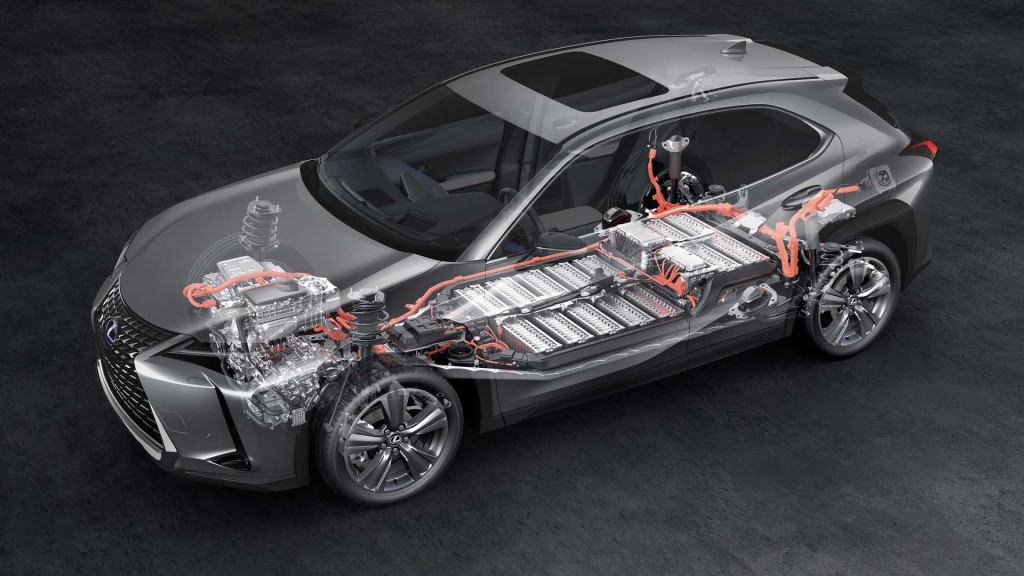
2020 Lexus UX 300e
EVs are already known for their quiet cabins but the engineers went a step further with the UX 300e by adding extra insulation to help mask wind and tire noise, which in EVs is much more apparent because of the lack of engine noise drowning it out. At the same time, the engineers also added a noise generator to communicate the driving conditions, for example becoming louder as speed builds.
We know Lexus parent company Toyota is developing new EV technology including dedicated platforms and solid-state batteries. Naturally, these technologies could be shared with Lexus. We also know that Lexus is looking at in-wheel electric motors but the technology is still a long way from reaching production.

2020 Lexus UX 300e
What we likely won't see from Lexus is a plug-in hybrid. The automaker's European chief in 2017 said the brand plans to move straight to battery- and fuel cell-electric powertrains.
For more from the Guangzhou auto show, head to our dedicated hub.
